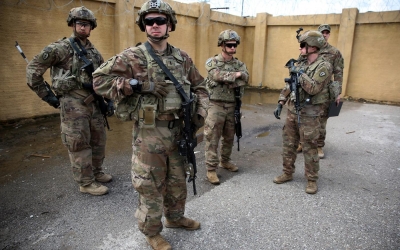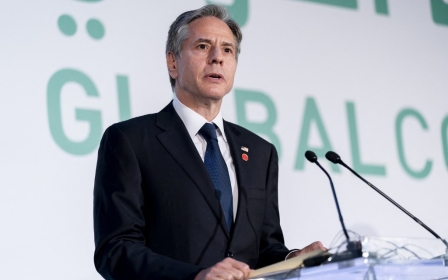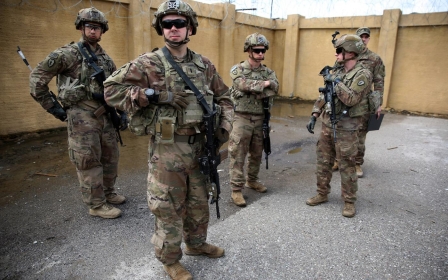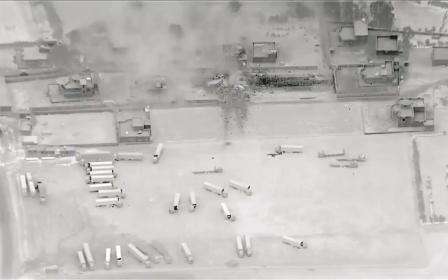Syria: Pro-Iran militias attack US base following weekend air strikes
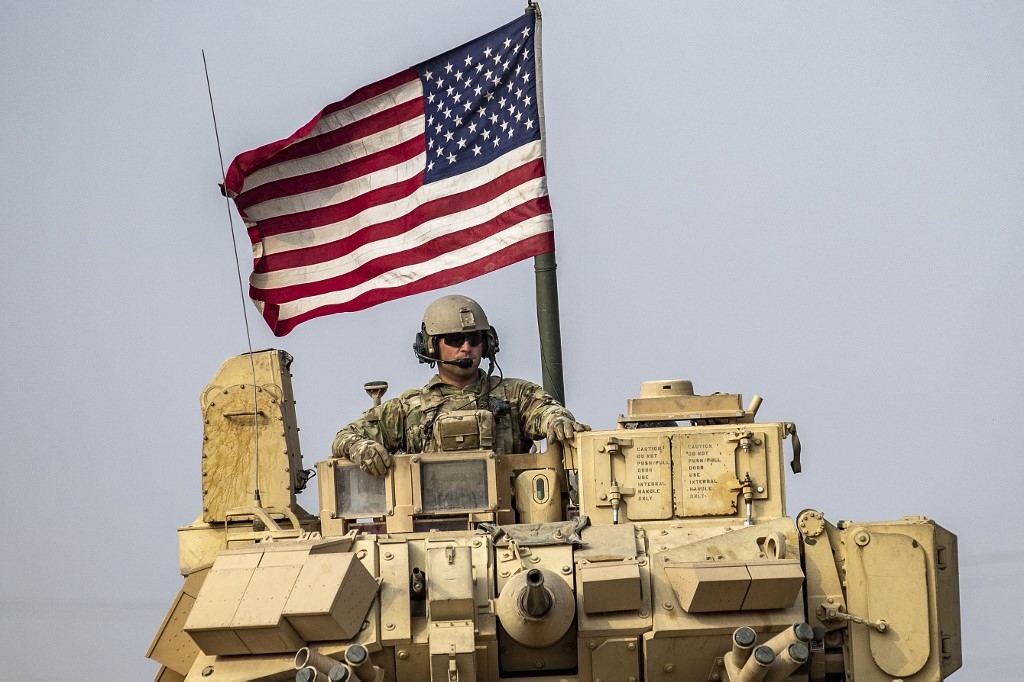
Pro-Iran militias exchanged fire with a US-led coalition in eastern Syria on Monday after deadly US air strikes in Iraq and Syria the previous night.
US forces "were attacked by multiple rockets" in eastern Syria, but there were no casualties and personnel "conducted counter-battery artillery fire at rocket launching positions," said coalition spokesman Wayne Marotto on Twitter.
The Syrian Observatory for Human Rights, a UK-based activist group, reported shellfire by Iran-backed militias against the US base in eastern Syria's Al-Omar oil field, and said the coalition fired heavy artillery at the militia-controlled town of Al-Mayadeen in response.
"There are no (US) injuries and damage is being assessed," Marotto said.
The Al-Omar oil field is controlled by the US-backed Syrian Democratic Forces.
The rocket fire underscored the risk of escalation and the limits of US military firepower to restrain Iran-aligned militias that Washington blames for a series of increasingly sophisticated drone strikes against US personnel and facilities in Iraq.
Hours earlier, US Secretary of State Antony Blinken and the White House had defended the US strikes in Iraq and Syria on Sunday.
"We took necessary, appropriate, deliberate action that is designed to limit the risk of escalation, but also to send a clear and unambiguous deterrent message," Blinken told reporters in Rome.
In a statement, Iraqi militia groups aligned with Iran named four members of the Kataib Sayyid al-Shuhada (KSS) faction they said were killed in the attack on the Syria-Iraq border, vowing to retaliate.
It was not immediately clear who fired the latest salvo at US forces, Reuters reported.
'All legal options'
Iraq's government, wary of getting dragged into a US-Iran conflict, had condemned the US strikes on its territory and said it would "study all legal options" to prevent such action from being repeated.
Syria called the strikes a "flagrant violation of the sanctity of Syrian and Iraqi lands".
Iraq's military issued a condemnation of the US strikes. The Iraqi and US militaries coordinate closely in a separate battle in Iraq, fighting remnants of Islamic State.
It was the second time US President Joe Biden had ordered retaliatory strikes against Iran-backed militias since taking office five months ago.
He ordered limited strikes in Syria in February, that time in response to rocket attacks in Iraq.
Two US officials, speaking to Reuters on condition of anonymity, said Iran-backed militias have carried out at least five drone attacks against facilities used by US and coalition personnel in Iraq since April.
'Creating crisis'
Biden's administration has been looking to potentially revive a 2015 nuclear deal with Iran. The attacks underscore how Biden aims to compartmentalise such defensive strikes, while simultaneously engaging Tehran in diplomacy.
White House press secretary Jen Psaki said Iran was a bad actor in the region and supported "extremely problematic behaviour" but defended the diplomatic outreach as a way to deny Tehran a nuclear weapon. Iran denies it is developing nuclear weapons.
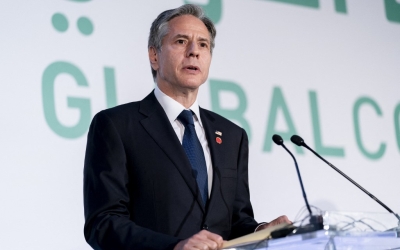
Psaki also said Sunday's air strikes in Iraq and Syria were in "self-defence" and justified under US law.
"The targeted strikes were directed at facilities used by Iran-backed militias involved in these ongoing attacks for purposes including weapons storage, command, logistics and unmanned aerial vehicle (UAV) operations," Psaki told reporters.
She cited Article II of the US Constitution which outlines the president's authority, including serving as commander in chief of the armed forces with the responsibility to protect US personnel whom she said had come under attack in Iraq by Iran-linked groups.
"So, Article II, the self-defence, the defence of the United States and our interests is our domestic justification for these strikes announced yesterday."
Biden's critics say Iran cannot be trusted and point to the drone attacks as further evidence that Iran and its proxies will never accept a US military presence in Iraq or Syria.
Iran called on the US to avoid "creating crisis" in the region.
"Certainly what the United States is doing is disrupting security in the region, and one of the victims of this disruption will be the United States," Iranian foreign ministry spokesman Saeed Khatibzadeh said on Monday.
'Death to America'
Thousands of members of Iraq’s Hashd al-Shaabi paramilitary alliance gathered in Baghdad on Tuesday to mourn their comrades killed in the US air strikes along the Syrian border.
With chants of "death to America" and "vengeance for the martyrs", they massed in Freedom Square near the capital’s high-security Green Zone – site of the US embassy.
Security forces were deployed in large numbers, sealing the Green Zone after a string of recent incursions by armed groups backed by Iran.
Several high-ranking Hashd commanders took part in the symbolic funeral, including its top commander Faleh Al-Fayyadh and Hadi al-Ameri, head of one of its main factions, the Badr Organisation.
The mourners, accompanied by vehicles full of gunmen, wore black and held up signs reading: "Attacks on the Hashed must speed up the withdrawal of American troops from Iraq."
Others carried pictures of Iranian general Qassem Soleimani and Hashd second-in-command Abu Mahdi al-Muhandis, who were killed in a US drone strike near Baghdad airport last year.
Middle East Eye delivers independent and unrivalled coverage and analysis of the Middle East, North Africa and beyond. To learn more about republishing this content and the associated fees, please fill out this form. More about MEE can be found here.


